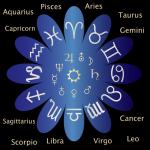 From Denyse O’Leary at MercatorNet:
From Denyse O’Leary at MercatorNet:
Belief in God is declining and belief in ghosts and witches is rising.
… It is a robust, longstanding phenomenon that liberals/progressives (especially millennials), including the “sciencey” ones, show more interest in occult ideas than others do. Is that counterintuitive, as many imply, or are we missing something? Vyse offers an interesting take:
…
So here’s the religion angle: It’s clearly not science that holds superstition in check in Western society. It’s traditional Western religion, which insists on transparent truths (truths that all may know) and forbids attempts at occult, secret truths. Vyse notes that traditionally religious people would be much less likely to resort to the occult following an electoral disaster. In a universe that is in fact run by transparent rather than occult forces, that enables them to adjust to adverse events, whatever they may believe about currently cool science issues like Darwinism or climate change. More.
See also: And now for something completely different… Darwinian PZ Myers laments the sad state of atheism today